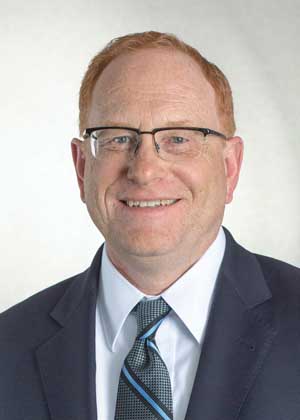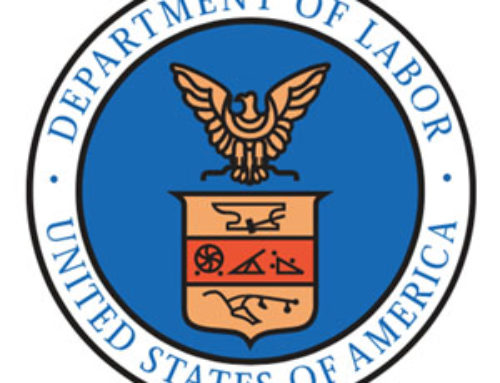As of July 1, the Northwest Fruit Exporters becomes a member of the Northwest Horticultural Council, which will oversee the organization under a new management agreement.
The closer affiliation of the two groups, in talks for more than a decade and in development for the past three years, is intended to streamline and better coordinate policy and technical work of the industry. Both organizations handle foreign market issues and are based in Yakima, Washington.
The Northwest Horticultural Council focuses on national and international policy issues impacting growers and shippers in Washington, Oregon and Idaho, encompassing all manner of international trade barriers in all of the tree fruit industry’s 50-plus export countries. These include food safety, pesticide minimum residue levels, crisis communication, phytosanitary barriers and labeling, among other things.
NFE currently manages phytosanitary work plans for three crops exported to four countries: apples for Mexico, China and Japan; cherries for Japan, Australia and China; and pears for China.
Changes were made to the bylaws of both organizations allowing the council to manage the NFE and for NFE to become a council member. The boards of both organizations voted on and approved the new management agreement this spring.
Under the agreement, NFE employees become employees of the council, and NFE will retain two seats on the NHC board.

Mark Powers
In the coming months, the council and NFE will be examining everyone’s roles to determine how work should be allocated and adjusted to meet the broader needs of the industry, said Mark Powers, council president. “The question always is, ‘How can we serve the growers more effectively and productively?’ That’s what we’re always working toward.”
The proposal briefly stalled amid a federal review of whether a closer affiliation by the two groups would affect an NFE trade certificate that allows shippers to share export information.
The council had originally asked to be added to the certificate, but that request was withdrawn in January, and firewalls have been put in place to ensure that only those employees who need to be involved in certificate matters will be, Powers said.
Generally, though rare in the U.S., trade certificates are designed to protect an industry from damage lawsuits for actions that would otherwise be illegal under antitrust laws, such as setting strategies for overseas pricing. Strategizing prices domestically remains illegal.
The certificate, viewed as more of an added “insurance policy,” has been employed in the past, most notably in the anti-dumping cases filed against the U.S. apple industry by Mexico beginning in 1996.
The role of Northwest Fruit Exporters should remain the same in terms of the programs it manages, manager Fred Scarlett said. The organization will still maintain a membership list, collect dues for the programs it manages and maintain a Department of Commerce certificate of review.
NFE helps to coordinate site visits by foreign inspectors for the programs it manages and could assist the NHC on similar efforts, he said. NFE already has been helping NHC with development of a Thailand protocol for export of apples, cherries and pears.
NFE also is working to arrange training workshops in August for apple exporters, primarily those targeting the Mexico and Taiwan markets.
“There’s plenty of work,” Scarlett said. “We’re just bringing it together so it’s working as one unit, with one voice going to agencies on behalf of the industry.”
Looking ahead
The policy issues facing the tree fruit industry are well known, Powers said, and on the trade front, they are constantly evolving.
In June, Powers led a delegation of growers and industry representatives to Washington, D.C., to meet with Trump administration officials and members of Congress to discuss foreign trade sanctions negatively impacting the industry.
The meeting, originally intended to focus strictly on China’s new tariffs on apples, pears and cherries, had been in the works for a couple of months, but India, Mexico, Canada and the European Union later imposed tariffs as well, broadening the focus of the talks.
In addition to Powers, members of the delegation included Cass Gebbers of Gebbers Farms and Chelan Fresh in Brewster, Washington, and a board member of the Washington Apple Commission; Bryon McDougall of McDougall and Sons and Columbia Marketing International in Wenatchee, Washington, and a Northwest Horticultural Council trustee; Steve Smith of Yakima Fresh in Yakima, Washington, and a Northwest Fruit Exporters board member and council trustee; Washington Apple Commission President Todd Fryhover; and Jim Bair, president of US Apple in Washington, D.C.
On the food safety front, Powers said he believes the industry is in a better position overall as a result of the council’s efforts to unify the industry to bring common-sense, impactful changes to the Food Safety Modernization Act — mostly through educating policymakers and regulators on the industry itself.
“We’ve had the opportunity to talk about and educate people on what really makes sense for people’s health and is commercially affordable and feasible,” he said. “It’s the same with pesticide regulations, advocating for products growers need.”
Other areas of concern domestically include the availability of labor, resolution of a new Farm Bill and regulation of organics. •
—by Shannon Dininny
Correction: In the printed version of this story that appeared in the July issue (“Joining forces, moving forward” on Page 32), Good Fruit Grower misspelled the first name of Bryon McDougall. We regret the error.






Leave A Comment